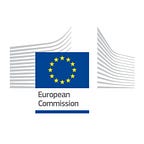World Water Day — 5 Facts
Water is vital for good health and life yet millions still lack access.
On 22 March, World Water Day reminds us all of the importance of water and highlights the fact that many people do not have basic access to this life-giving resource.
Every year, hundreds of millions of people are affected by natural disasters, or driven into displacement because of conflict. Very often, these people lack safe access to water close to their home; they are either forced to spend hours walking to the closest water source, or deal with the effects of using contaminated water. Due to climate change, things are likely to get even worse. Taking action to tackle the world’s water crisis is crucial.
Together with sanitation services and good hygiene, water is essential for people to be healthy and to create a safe living environment. Within the humanitarian community, this triad is known under the acronym “WASH” (water, sanitation and hygiene).
What are the global WASH needs and how does the European Commission help meet them? Here are five facts you should know:
1. Climate change dramatically affects water and sanitation
Water and climate change are inextricably linked. The number of natural disasters occurring every year has more than doubled over the past two decades. Increasingly frequent floods, droughts and cyclones have serious negative consequences on vulnerable populations worldwide, as they limit their access to basic water and sanitation services.
2. WASH needs are growing all over the world
Each year, an estimated 1.7 million people die as a direct result of insufficient water conditions and sanitation services. By 2025, the number of people without access to safe water is expected to reach 2 billion people. Climate change, urbanisation and rapid population growth are the key factors behind this trend. This sobering forecast means there will be enormous pressure on the resources and capacity of the humanitarian community to keep up with growing needs worldwide.
3. WASH assistance is growing, too
Together with food and health assistance, WASH is one of the three main areas of humanitarian operations. Over the past ten years, global humanitarian funding for the WASH sector has increased thirty-fold. However, needs are growing even more rapidly than the available funding.
4. The EU’s WASH assistance makes a difference
The European Commission is one of the largest humanitarian donors for the WASH sector. In 2016 alone, over €150 million were allocated to water, sanitation and hygiene projects all over the world. The Commission’s humanitarian assistance in the WASH field follows three key priority areas:
- SPEED of response: with improved logistical support, rapid EU response teams can be deployed on site within 72 hours in the immediate aftermath of a disaster.
- COORDINATION: thanks to extensive partnership with non-governmental organisations, United Nations agencies and the IFRC, as well as a network of 140 field experts, the European Commission delivers quality WASH aid with a global and inclusive approach.
- LINKS with civil protection: from large-scale water pumps, to purification systems and replacing damaged water infrastructure, the European Commission relies on civil protection actors to offer technically sophisticated responses for many growing WASH needs, especially in an urban setting.
5. WASH goes beyond humanitarian aid
Humanitarian aid alone is not able to address the growing and evolving needs in the WASH sector. One solution lies in long-term projects such as infrastructure building. This is why the work of development actors in an emergency recovery phase is a vital complement to humanitarian responses. Additionally, the European Commission is committed to improving communities’ resilience to meets their WASH needs before they become humanitarian emergencies; prevention is always better than cure.
Learn more about the EU’s humanitarian WASH assistance.
